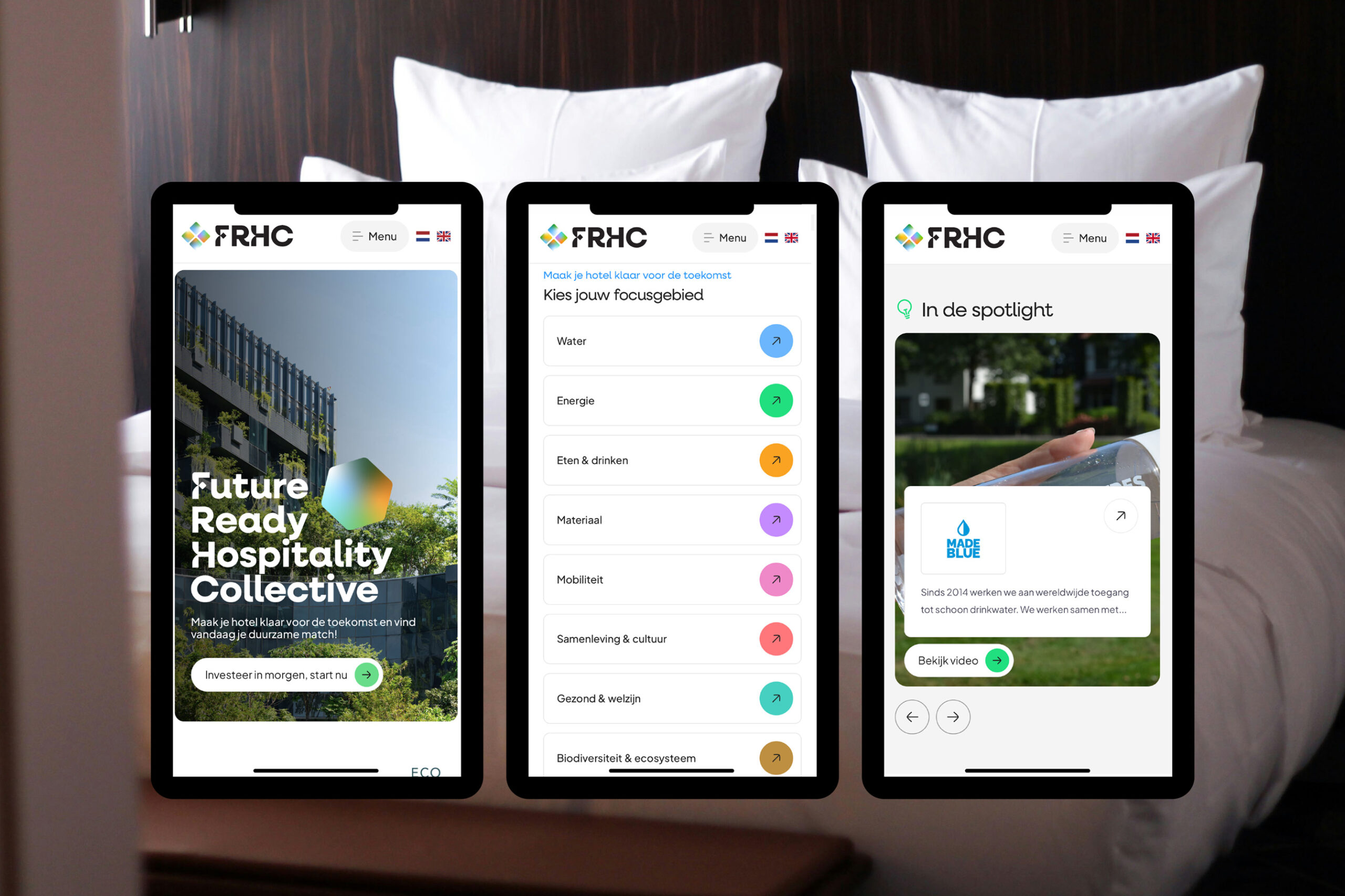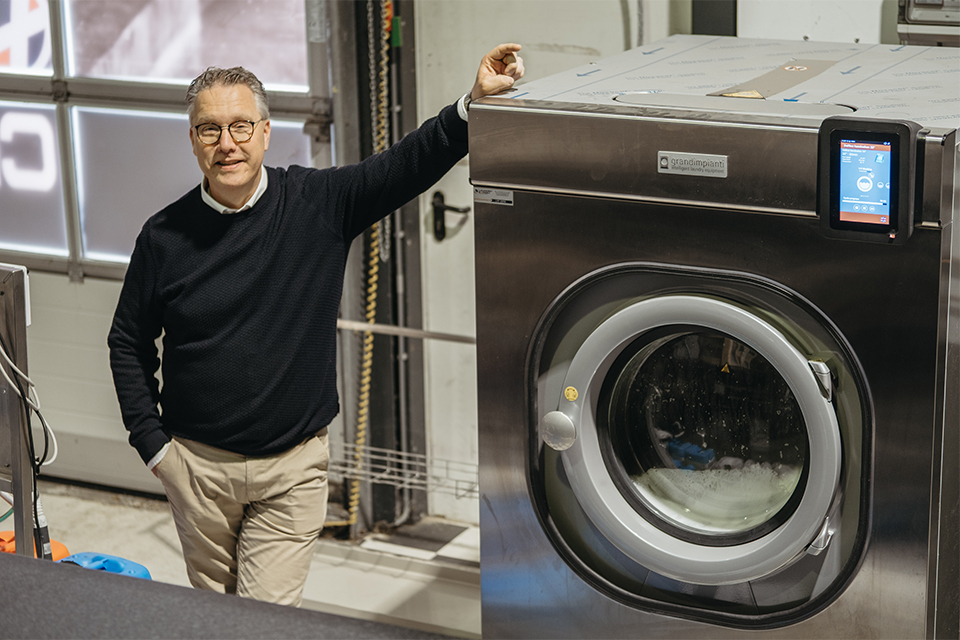
Towards smart, sustainable and carefree washing
Why more and more organisations are reinventing their laundry processes to balance staff, sustainability and costs
The laundry industry is changing. Whereas for years organisations did their laundry processes largely the same way, we now see that they are increasingly being looked at more critically. How can processes be designed to help with structural staff shortages, increasingly stringent sustainability requirements and rising energy prices?
Staff shortages: the invisible driver of change
Many organisations in sectors such as healthcare, hospitality and food notice the effects of staff shortages on a daily basis. It is not just about the number of people on the shop floor, but also the pressure this puts on existing teams.
Bjorn Lentelink, Area Sales Manager at Laundry Total, sees it every day: "The will is often there, but the hands are not. That makes organisations more likely to choose to professionalise or outsource their laundry processes. This gives employees room to focus on their core tasks, while the quality of the laundry process remains guaranteed."
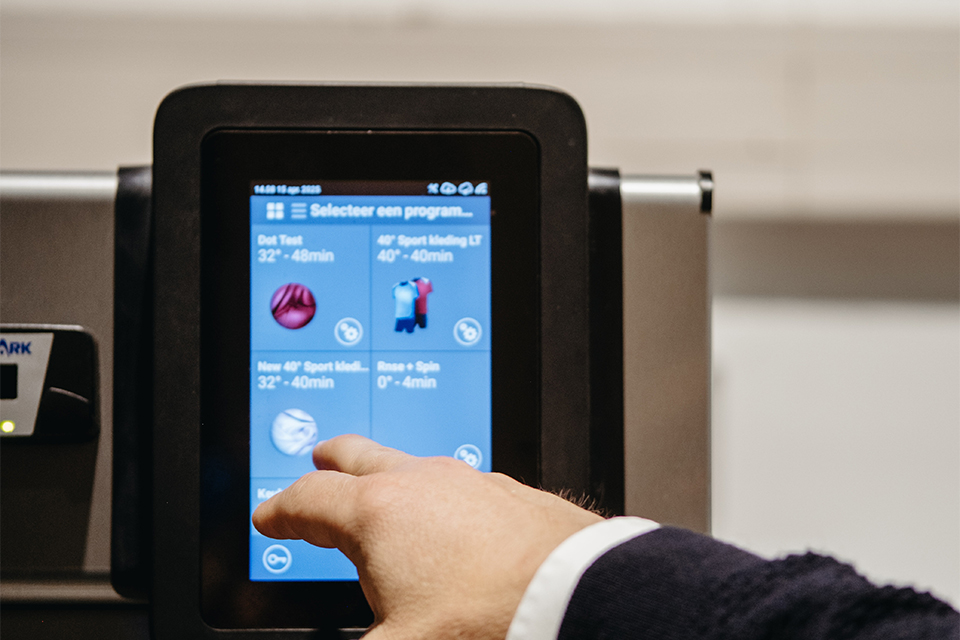
Sustainability as a strategic weapon
At the same time, the pressure to become more sustainable is growing. Organisations want to show that they are doing green business. Professional and industrial washing machines are more energy-efficient, last much longer and use less water and detergent. In-house washing also means no transport and less clothes and linen in stock.
"In-house washing is often instantly greener," Bjorn explains. "Companies that invest in this not only show that they take sustainability seriously, they also have an edge over competitors who do not do so as much."
Cost control and predictability
Besides personnel and sustainability, financial predictability plays an increasingly important role. Unexpected costs for maintenance or machine downtime can have a major impact. A fixed monthly fee and smart technology offer a solution here: modern washing machines are read remotely, so breakdowns can often be prevented or fixed faster.
"We can see exactly what is needed. That greatly increases our 'first time fix rate'. A technician is on site within eight hours and often we already know what needs to be replaced. For the customer, that means less downtime and no surprises in costs."
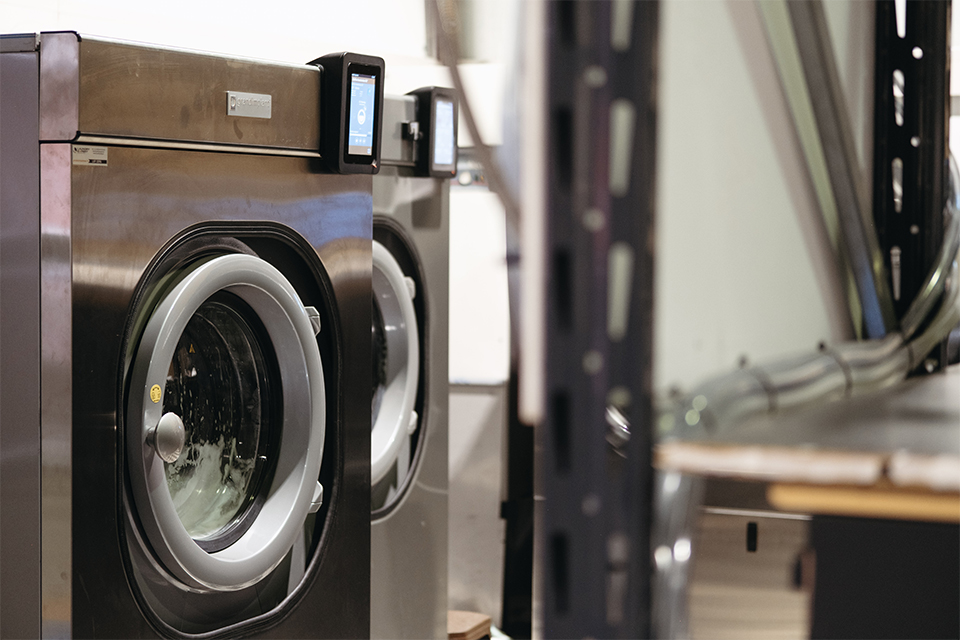
From product to solution
Organisations are no longer looking for separate devices or services. They want to be unburdened. This requires solutions that go beyond just the machine. Think of process optimisation, support in choosing detergents or calculating the actual cost per wash.
Bjorn: "Sales is not about selling a product, but about thinking along and being honest. We show customers what it really costs to do a load of laundry. In euros and in time. It often turns out that a lot can be saved if you organise it more intelligently. A cost reduction of more than 50% is the rule rather than the exception. Every industry and every spot requires a different approach. That thinking along is exactly where you make a difference."
Smarter, more sustainable and worry-free
Technology is playing an increasing role in the laundry industry. Think remote monitoring, automation and more energy-efficient machines, which make processes more efficient and reliable.
An example of where all these things come together is the Total Care concept. This combines machines, maintenance and detergents in one complete package. For organisations, this means predictable costs and less worry. They can refocus more on what they need to do rather than being preoccupied with the laundry process.
Bjorn sees the value in practice: "With Total Care, we take a close look at the whole process. From the type of stains to the frequency of washing, we tailor everything to the customer's situation. This not only results in big cost savings, but also peace of mind."
Conclusion
The laundry industry may not be the most visible sector, but its impact on business operations is huge. Staff shortages, sustainability and cost control are issues that affect all organisations. Companies that organise their laundry processes smartly and opt for solutions such as Total Care not only gain in efficiency, but also in sustainability and resilience. And that is exactly what the future demands.
Heeft u vragen over dit artikel, project of product?
Neem dan rechtstreeks contact op met Laundry Total.
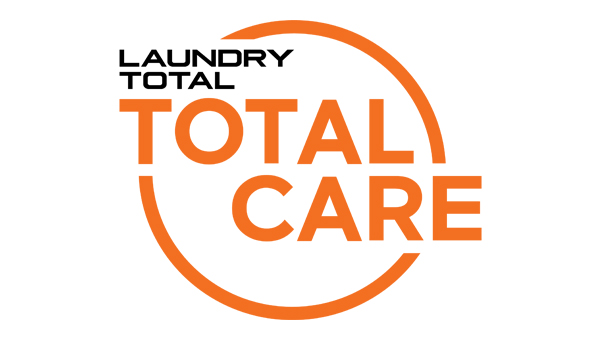 Contact opnemen
Contact opnemen


